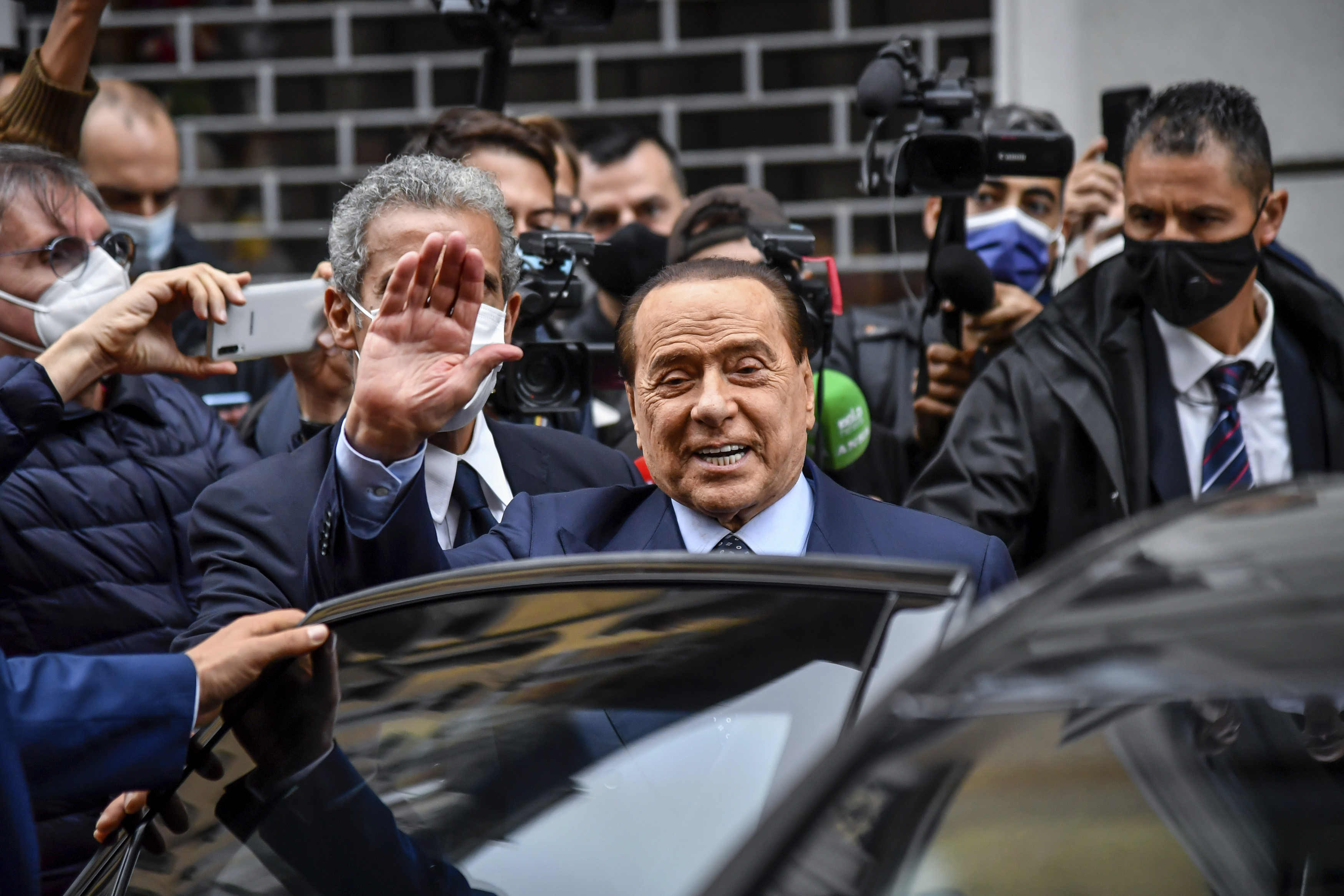Italy
Berlusconi's legacy continues to have an impact

picture alliance / ASSOCIATED PRESS | Claudio Furlan
© picture alliance / ASSOCIATED PRESS | Claudio FurlanSilvio Berlusconi, the dazzling, controversial media entrepreneur and several times ex-prime minister of Italy, is dead, but his legacy continues to have an impact: He significantly changed Italy's party landscape through his long-standing power - including in the media.
Silvio Berlusconi, Italy's longest serving head of government since World War II, died last week in Milan at the age of 86. Seven days of national mourning were declared-an honor bestowed on few politicians to date and criticized as excessive by politicians such as liberal Emma Bonino.
Only death could separate Berlusconi from his political ambitions; the leader of his "Forza Italia" ("Forward Italy") party still won a seat in the Senate in 2022. The aging Berlusconi has recently attracted attention for his sometimes confused statements on the Russian war of aggression in Ukraine. Shortly after the war began, he declared that Ukraine must be made to comply with Putin's demands, a statement he recanted shortly thereafter.
For a long time, Italians seemed to forgive the "Cavaliere" for pretty much any gaffe, which sometimes led to regret and amusement abroad. For example, he found then-U.S. President Barack Obama "beautifully tanned," and to the earthquake victims in L'Aquila, which was badly damaged in 2009, he recommended that they consider their temporary accommodation in emergency tents as a "camping weekend." Even sex scandals, "bunga, bunga" parties and the dubious financing channels of his Mediaset media group, which owns Italy's biggest commercial TV stations, did not harm him; only in 2014 was he convicted of tax fraud.
When the party system of the First Republic collapsed in Italy in the early 1990s as a result of corruption scandals, patronage politics and illegal party financing ("mani pulite - clean hands"), this abruptly led to the disintegration of the Christian Democratic Party (Democrazia Cristiana, DC) and Socialist Party (PSI, Partito Socialista Italiano). The fringes of the political spectrum, the Communists and the extreme right, were the main beneficiaries of the voters' disappointment and turning away. A referendum brought about a change in the constitution and electoral law from proportional representation to an almost unrestricted majority voting system, which enabled Berlusconi to fill the political vacuum. He formed a new Italian right by managing to ally his "Forza Italia" with the xenophobic Lega Nord and the post-fascists and cover a broad spectrum of voters. Shortly thereafter, he was elected Italy's head of government for the first time in the so-called Second Republic in 1994; three more terms followed at varying intervals. With the help of his media empire and his immense financial resources, Berlusconi ran the party like his own property; he made all the decisions and never once had to face a party vote. Self-promotion is part of the political business, but with Berlusconi, the staging of one's own ego and the alignment of a party with its charismatic party leader reached a new dimension. Populism and radical personalization were defining elements of his political style from the very beginning. Long before a Donald Trump entered the political stage in the U.S., Berlusconi styled himself in Italy as an "anti-politician" and antagonist to the political establishment, who as an entrepreneur tackled things instead of just talking. As the mouthpiece of the "common people" in the fight against the established "party cartels," he targeted his countrymen's disenchantment with politics, made many promises far from facts, and used legislative work to leverage "checks and balances" (separation of powers) to protect his interests.
He confronted his political opponents with antagonistic confrontation; he invoked the fight against the "red danger" of communism and railed against the judiciary and critical media.
Berlusconi's legacy continues to have an impact today: With the restructuring of the Italian right, Berlusconi's policies contributed massively to the emergence of a bipolar party system. Populism from both the left and the right has been part of the political mainstream ever since; from the left-wing populist 5-Star Movement and all the way to the far-right "Brothers of Italy," whose leader Giorgia Meloni has led the country's fortunes since her election victory last September. With his media power, he suppressed any attempts to form a moderate force. Most recently, his party, like Matteo Salvini's Lega, found itself in a downward spiral in the face of abysmal election results and poll numbers, and in the unfamiliar role of junior partner in Meloni's right-wing coalition again. Where Forza Italia goes from here is an open question. Moderate party members could look for a political alternative and thus bring new support to liberal parties.
